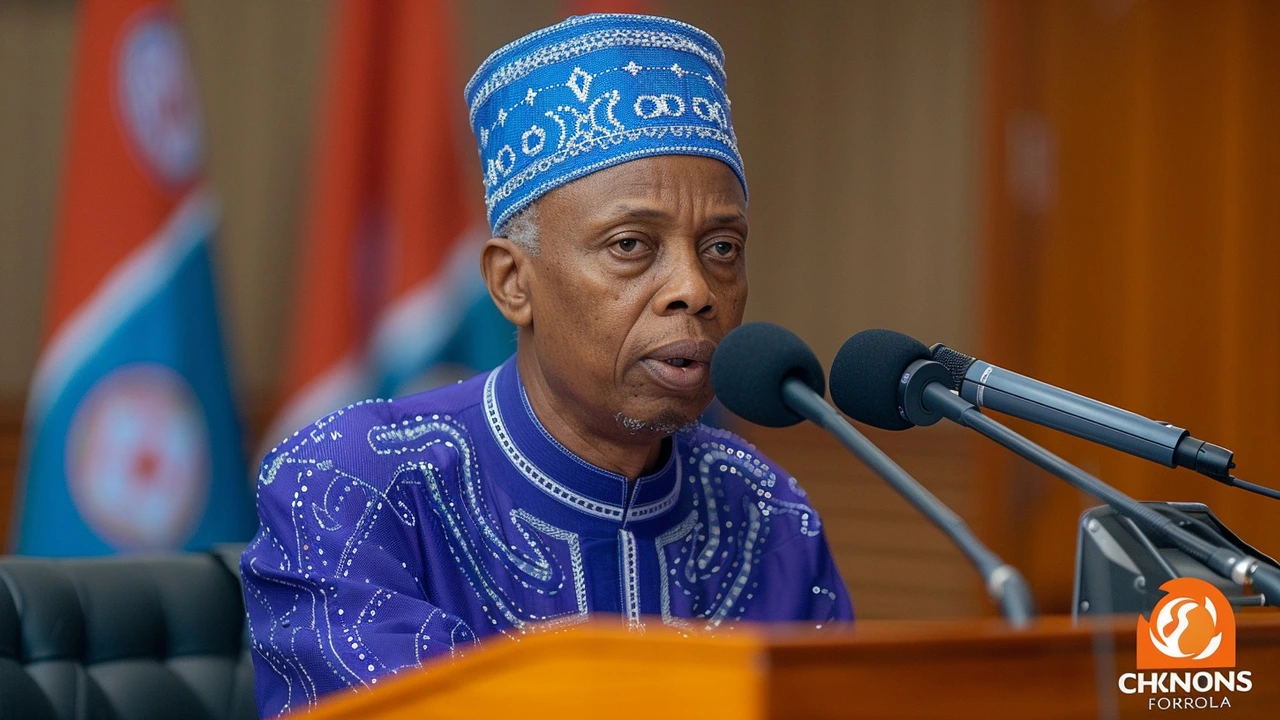Tinubu Administration Attracts Over $20 Billion in Foreign Investments for Nigeria's Economic Growth
24 May, 2024Tinubu Administration Secures $20 Billion Investments for Nigeria's Economic Revival
In a significant development for Nigeria’s economic landscape, Vice President Kashim Shettima disclosed that the Tinubu administration has successfully secured over $20 billion in foreign investments. Speaking at the 2024 Vanguard Economic Discourse in Lagos, Shettima elaborated on the critical investments attracted from various international stakeholders, indicating a promising economic trajectory for the nation.
Investment Milestones and Key Facets
The announcement highlighted several landmark deals. An impressive $14 billion investment has come from India, which showcases a robust bilateral relationship and mutual economic interests. Additionally, the Netherlands has committed a noteworthy $250 million, further exemplifying global confidence in Nigeria’s economic potential. Perhaps more significantly, $500 million has been earmarked for the development of lithium resources in Nasarawa State, marking a significant move towards harnessing the nation’s abundant natural resources for economic gain. Furthermore, Germany has pledged $500 million towards renewable energy projects, aligning with global trends towards sustainability and clean energy.
These substantial investments are part of a comprehensive strategy by the Tinubu administration to attract foreign capital and spur economic growth amid global uncertainties. Such efforts are vital in enhancing Nigeria's economic resilience and promoting sustainable development.
Leveraging Continental Free Trade and Investment in Human Capital
One of the cornerstones of this economic strategy is the African Continental Free Trade Agreement (AfCFTA). The administration is keen on leveraging this agreement to unlock new opportunities for Nigerian exporters, enabling them to tap into broader African markets and enhance their competitive edge.
In addition to focusing on trade and investment, the administration is also deeply committed to investing in Nigeria’s most valuable asset: its people. Through various development programs, there is a concerted effort to enhance education, skills training, and healthcare, thus laying a strong foundation for long-term growth and prosperity.
Fostering Sustainable Development
Vice President Shettima emphasized the administration's dedication to fostering sustainable development. By adding value to the country’s vast natural resources, the government aims to create high-value industries, reduce dependency on raw material exports, and stimulate diversified economic activity. This approach is in line with President Tinubu’s vision of expanding capacity in critical economic sectors like manufacturing, technology, and industrial production.
The emphasis on renewable energy, particularly the $500 million investment from Germany, is a testament to this sustainable development strategy. By investing in renewable energy projects, Nigeria is not only addressing current energy deficits but also contributing to global efforts to combat climate change.
Aiming for a $1 Trillion Economy
One of the administration's ambitious goals is to transform Nigeria into a $1 trillion economy. This vision is underpinned by policies aimed at economic diversification, infrastructural development, and human capital enhancement. By securing these substantial foreign investments, the administration is laying the groundwork for achieving this long-term economic goal.
These investments are expected to generate significant employment opportunities, enhance technological capabilities, and foster a vibrant business environment. The government’s proactive approach in courting these investments reflects a strategic understanding of the global economic landscape and a commitment to making Nigeria an attractive destination for international investors.
Building Economic Resilience
As the world continues to grapple with economic uncertainties, Nigeria’s proactive investment strategy stands out as a beacon of resilience and forward-thinking. By securing over $20 billion in foreign investments, the Tinubu administration has demonstrated a clear commitment to economic revival and sustainable growth. This approach not only bolsters economic activities in the short term but also sets the stage for long-term prosperity and stability.
In conclusion, the Tinubu administration's efforts to attract substantial foreign investments and focus on sustainable development are crucial steps towards transforming Nigeria's economic landscape. With a committed focus on leveraging trade agreements, enhancing human capital, and adding value to natural resources, Nigeria is on a promising path to achieving its vision of a robust $1 trillion economy.

 by
by